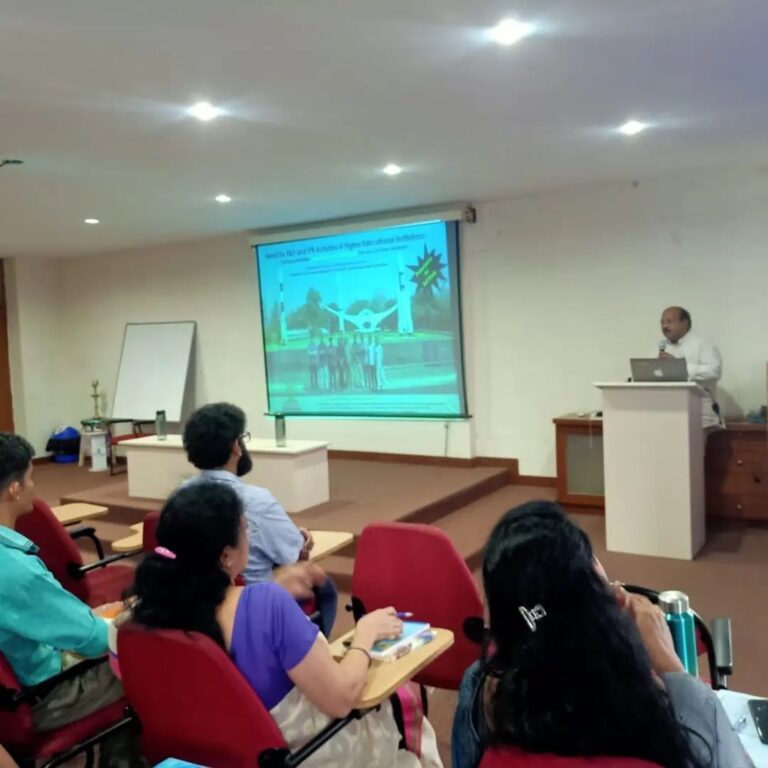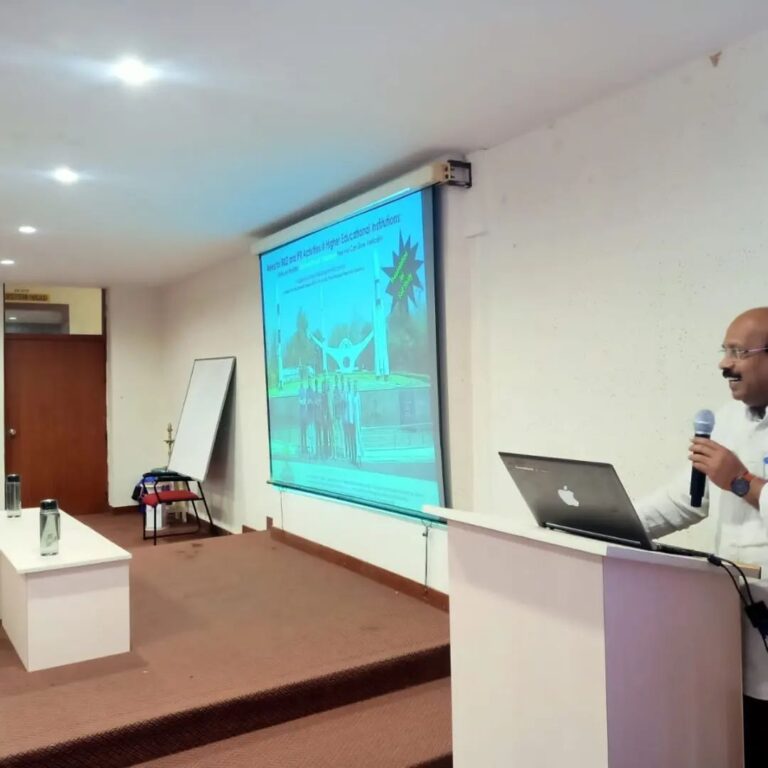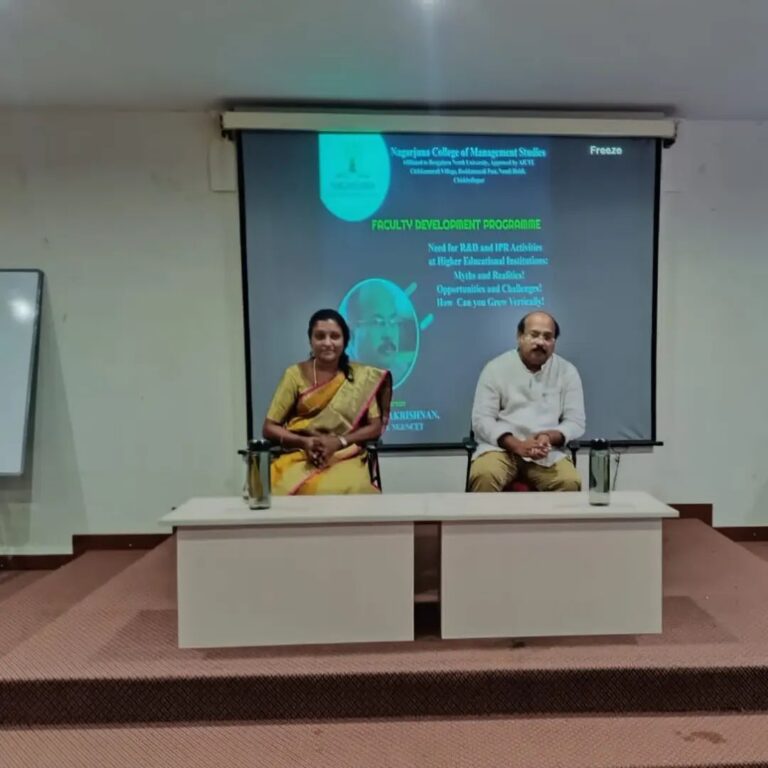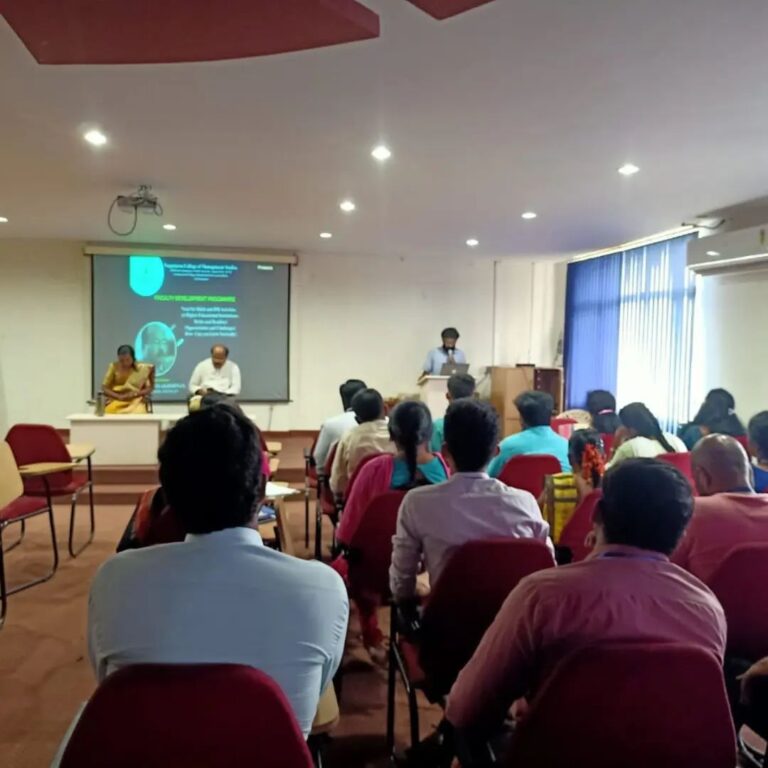Conference
Conferences serve as a platform to gather individuals who share similar interests and engage in discussions and exchange of ideas on a particular subject. Conferences can be organized on a wide range of topics, vary in size, and can be hosted by different organizations. These events are designed to cater to the needs of academics, students, research scholars, as well as undergraduate and postgraduate students.
During conferences, professionals from diverse backgrounds come together to share new insights, discuss the latest research, and present their findings. Such conferences are typically organized by universities, institutions, and research societies to address specific topics and issues. By providing a common platform for experts to interact and engage in meaningful conversations, conferences contribute significantly to the growth and development of the academic community.
NATIONAL CONFERENCE ON “BHASHA SAMPADA”
August 18, 2023
The one-day national conference, “Bhasha Sampada,” held on August 18, 2023, was a grand celebration of language, literature, and culture, organized by the Department of Languages at Nagarjuna College of Management Studies in association with Bengaluru North University, Tamaka and Dravidian University, Kuppam, Andhra Pradesh.
This conference served as a platform for scholars, researchers, and language enthusiasts from across the nation to come together and engage in meaningful discussions.
The event commenced with an inaugural ceremony that featured prominent figures from the academics setting the tone for the day. The Eminent keynote speaker was Prof. Dominic D, Registrar (Evaluation), In charge – Registrar (Academics), Bengaluru North University and scholars in the field of linguistics and literature delivered thought-provoking addresses, shedding light on the interplay between language and culture, and the significance of preserving linguistic diversity in our modern world.
The conference’s schedule included multiple parallel sessions and workshops, allowing participants to delve into specific aspects of language, literature, and culture. These sessions covered topics ranging from the preservation of endangered languages and dialects to the exploration of ancient texts and contemporary writings that showcase the beauty and depth of India’s linguistic heritage.
This conference also provided a valuable networking opportunity for participants, enabling them to exchange ideas, forge collaborations, and lay the foundation for future research endeavors. It was a melting pot of linguistic knowledge, where attendees engaged in stimulating discussions and left with a deeper appreciation for the linguistic and cultural mosaic of India.
“Bhasha Sampada” was not just a conference but a celebration of the linguistic and cultural treasures that make India a unique and vibrant nation. It left a lasting impression, inspiring a renewed commitment to the preservation and promotion of the diverse languages, literature, and cultures that enrich our lives.
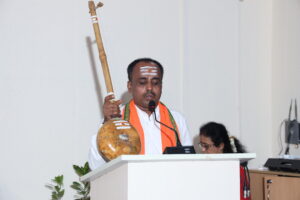
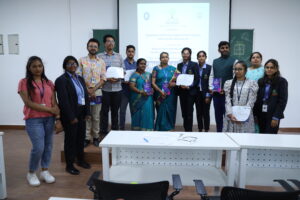
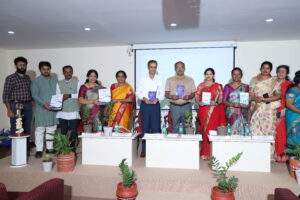
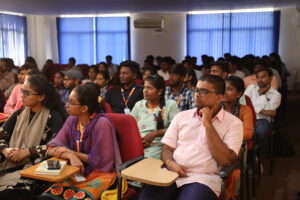
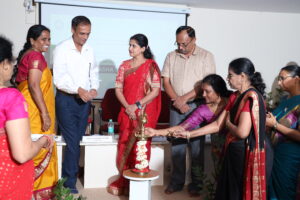
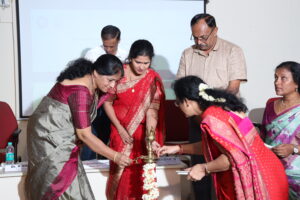
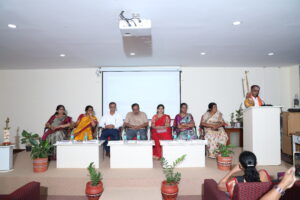
NATIONAL CONFERENCE on “RE-DISCOVERING BUSINESS PRACTICES POST COVID-19”
January 21, 2023
The National Conference on “Rediscovering Business Practices Post-COVID-19” was held on January 21, 2023, and was jointly organized by the Department of Commerce and Management and IQAC, Nagarjuna College of Management Studies, Chikkaballapur. The conference aimed to facilitate research and developmental activities in the global economy in the aftermath of the COVID-19 pandemic while providing a platform for the exchange of ideas among academicians, researchers, industrialists, students, and practitioners.
The conference received a substantial number of abstracts from across the country and covered various sub-themes, including Accounting and Finance, Human Resource Management, Entrepreneurship, Innovation, and Technology, Marketing, and Economics. By exploring these sub-themes, the conference sought to address the challenges and opportunities presented by the COVID-19 pandemic and to rediscover effective business practices to ensure sustainable growth and development in the global economy. The keynote speaker of the conference was Mr. Ramesh K V, and the moderator was Mr. Punith Raj K N, with panelists Dr. Nitu Ghosh, CA. Akash Pirgal, and Dr. H Nagaraj.
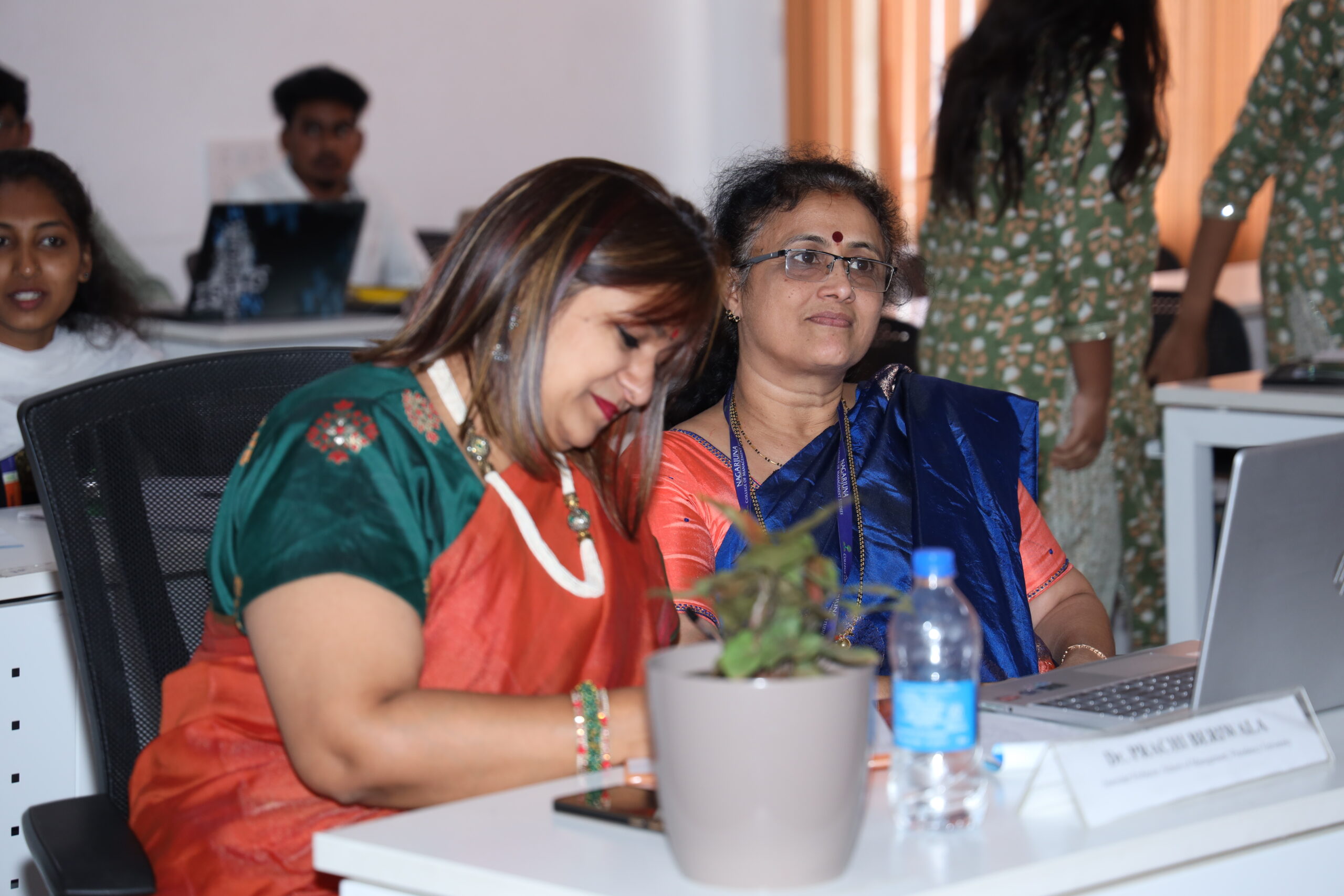
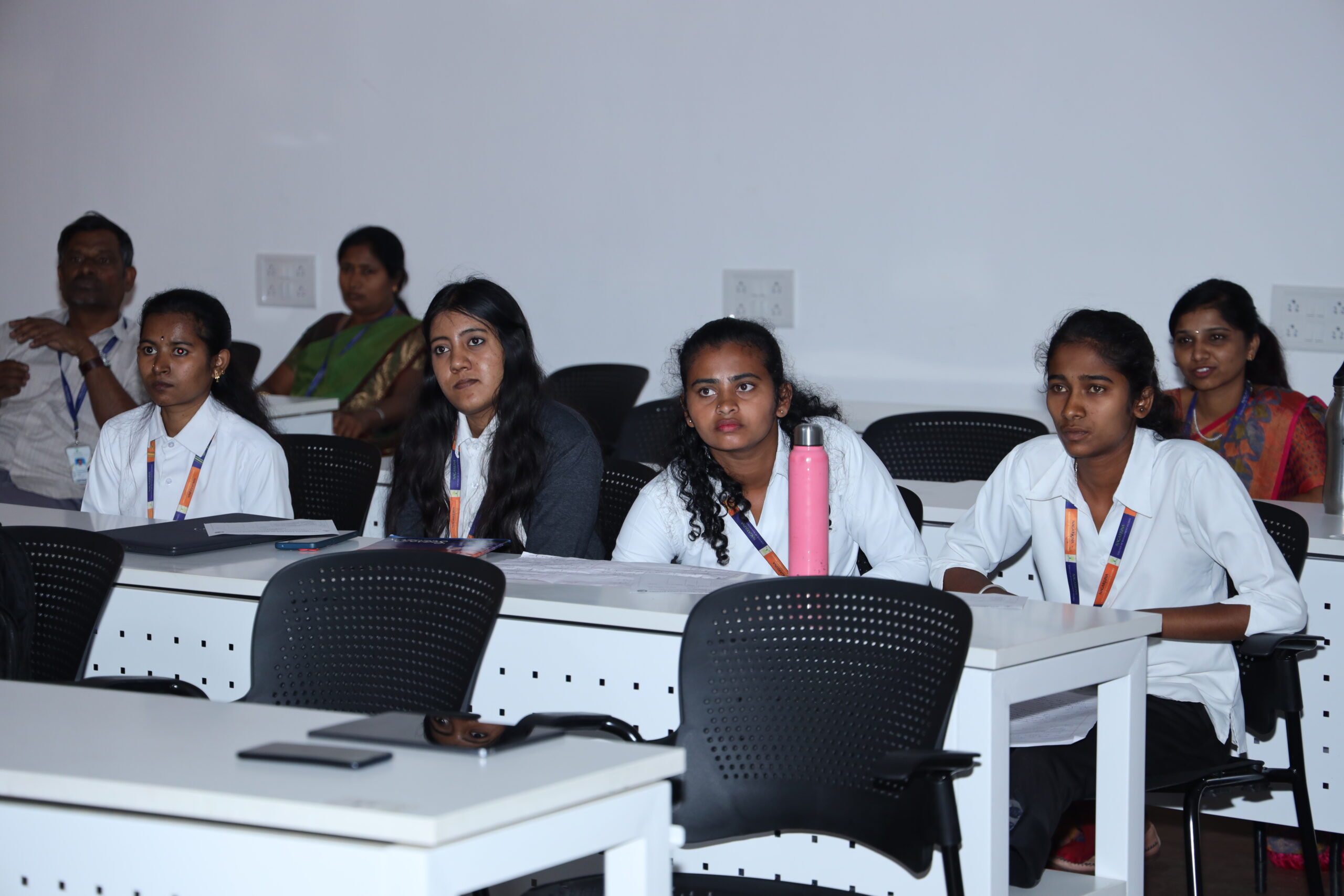
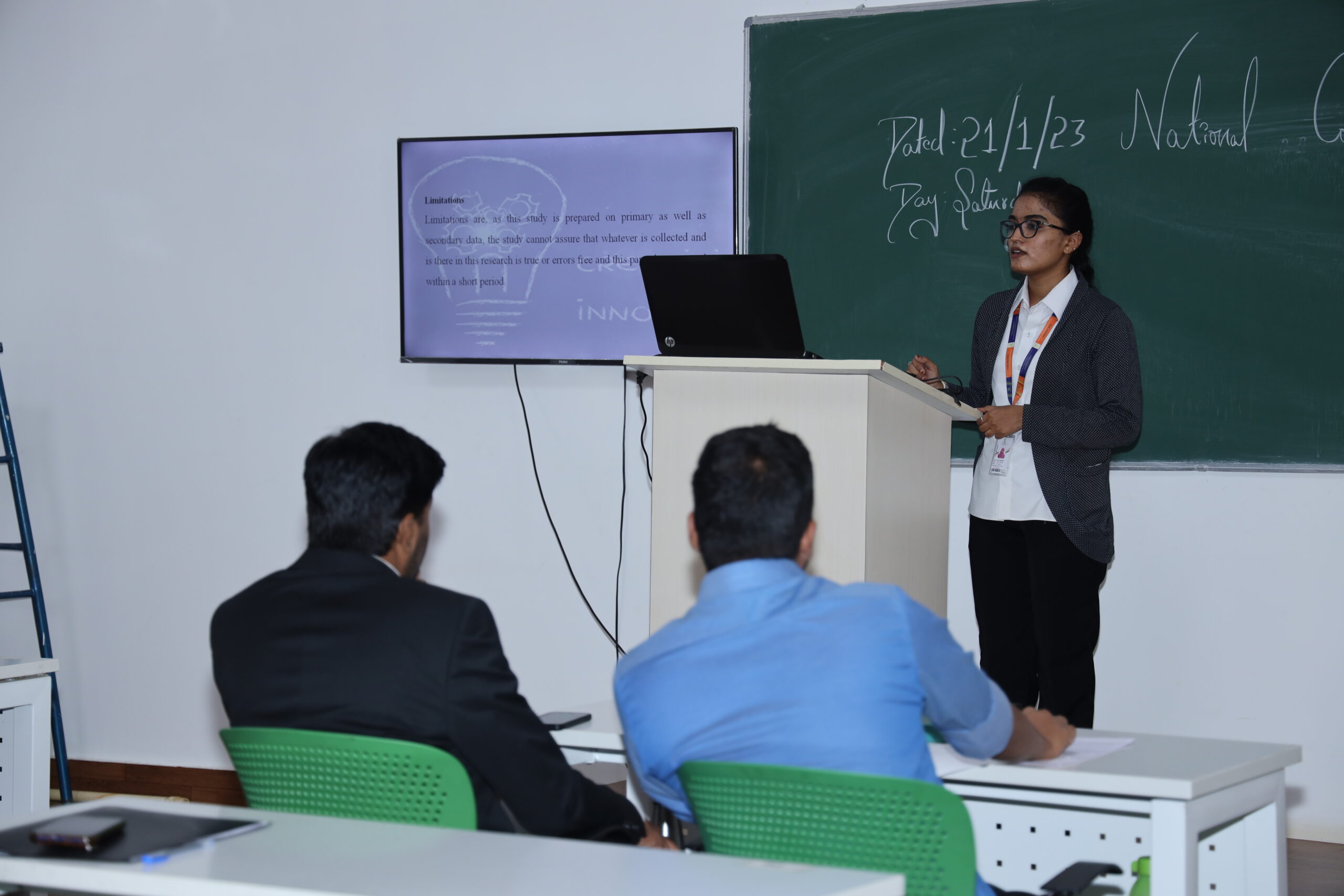
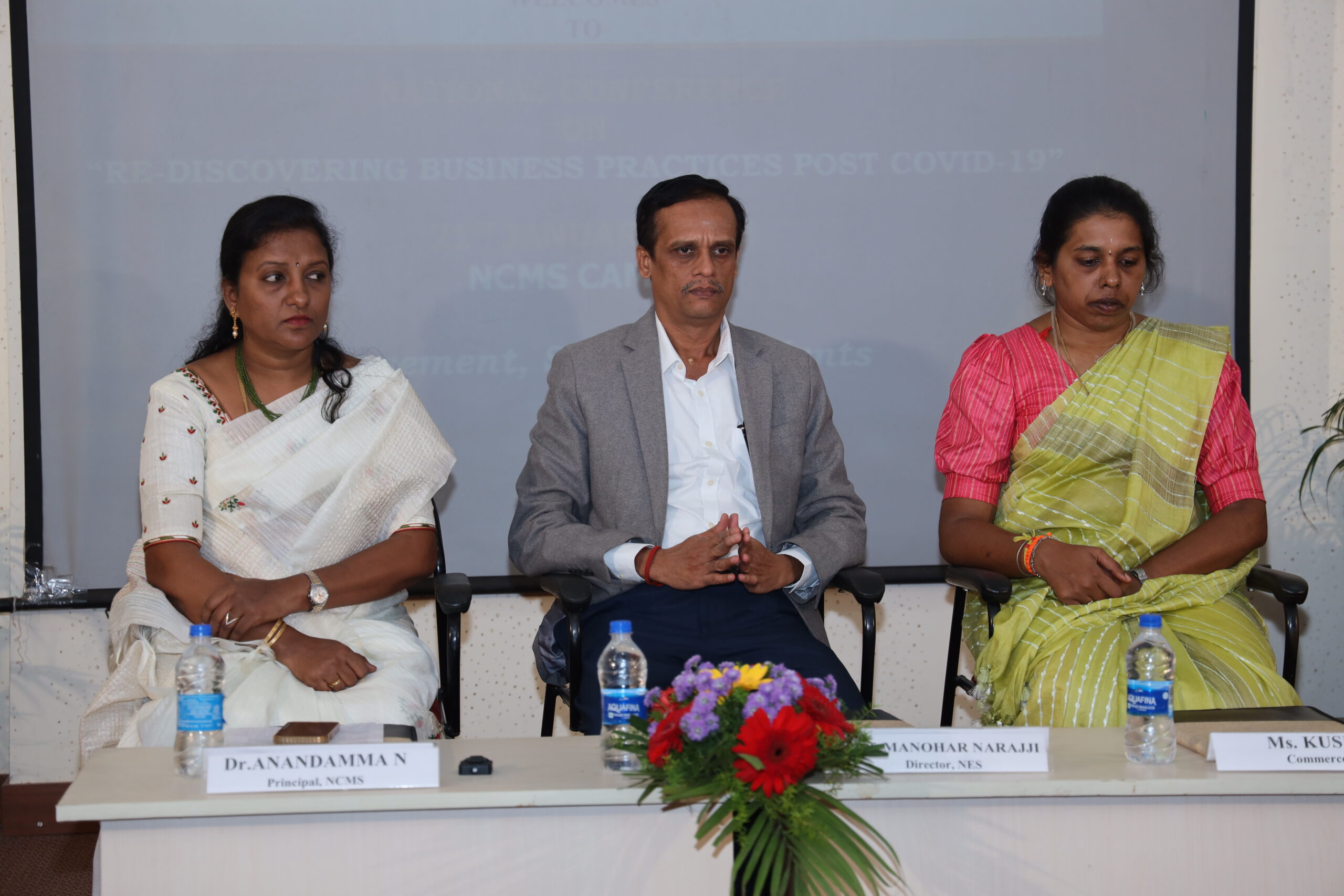
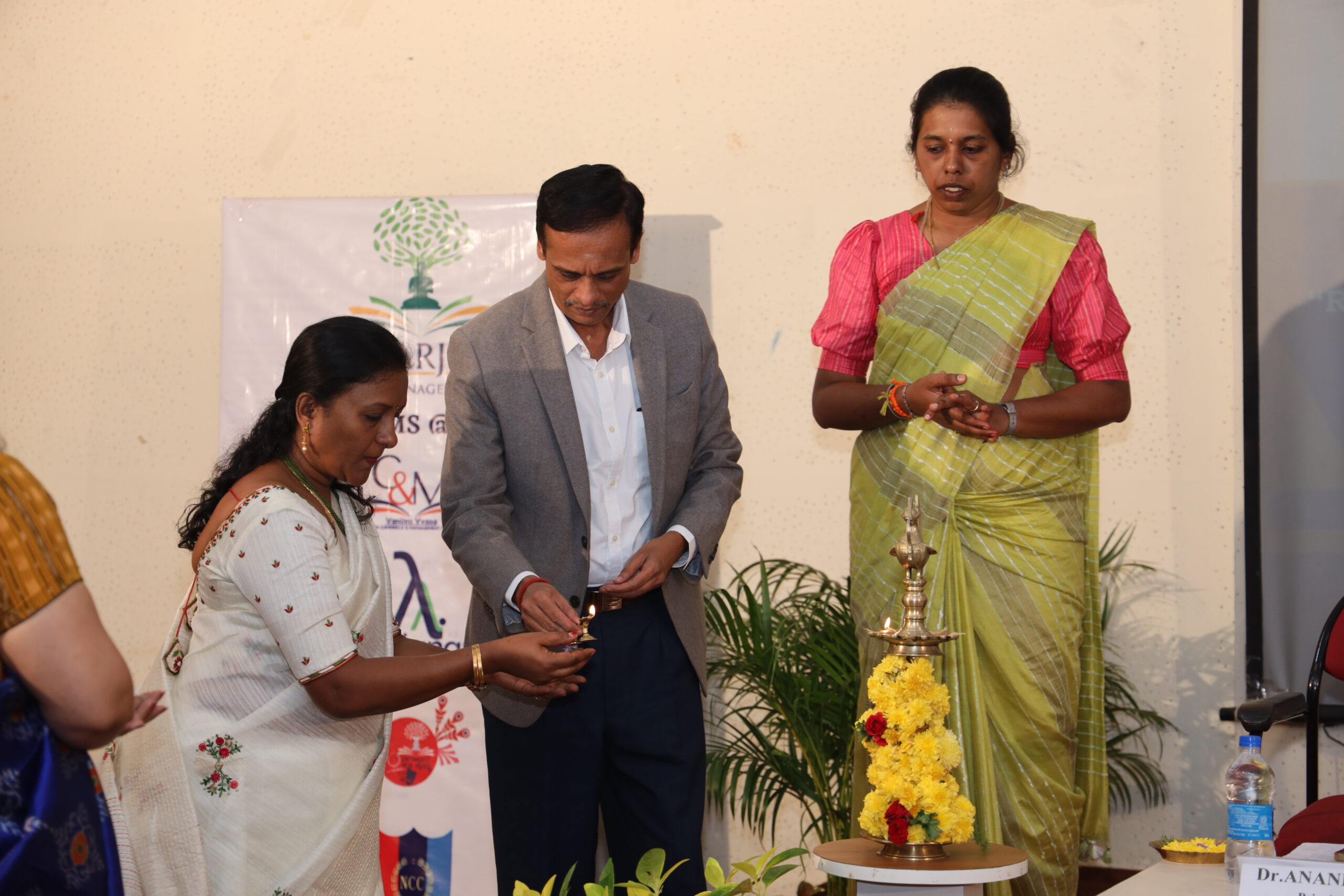
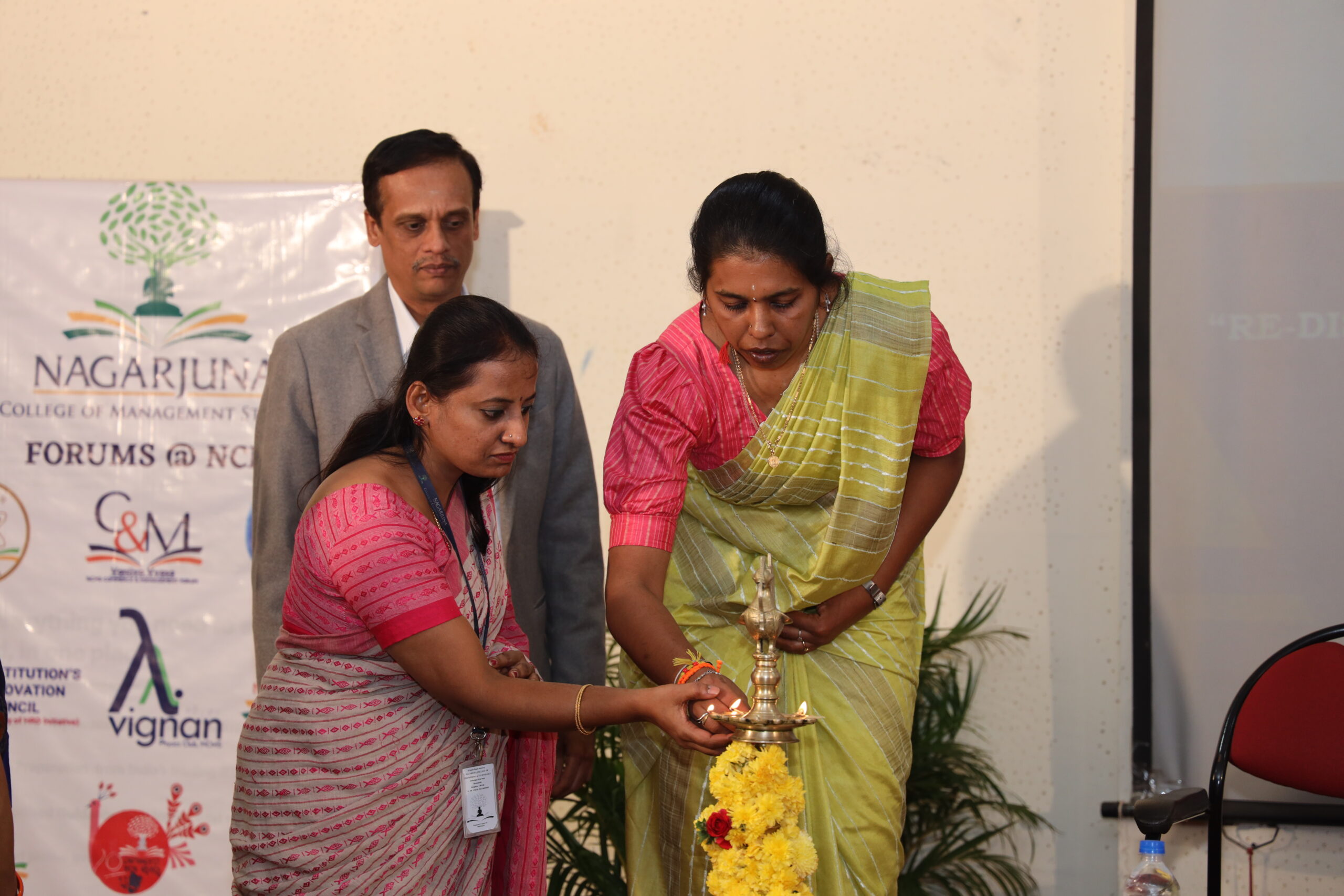
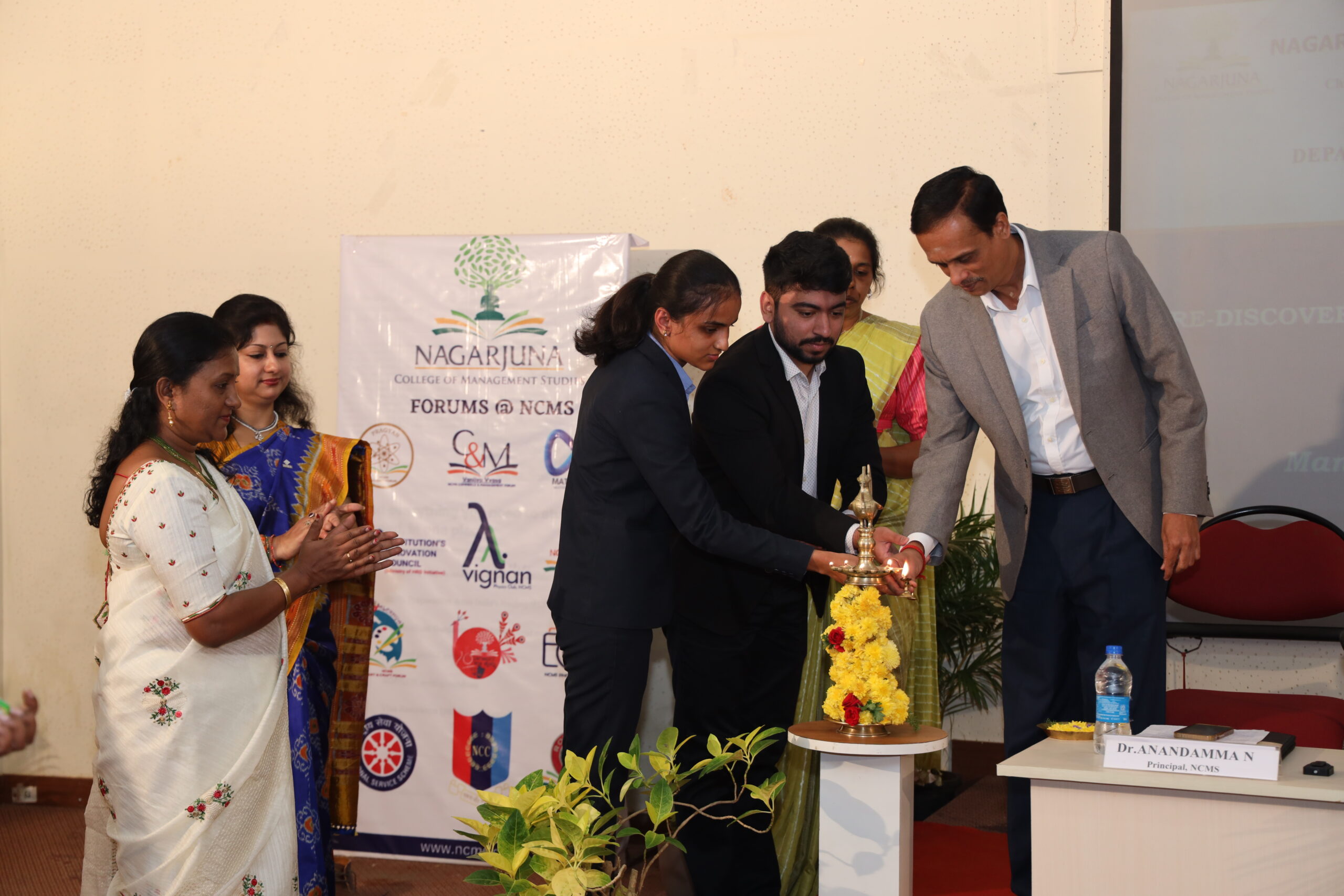
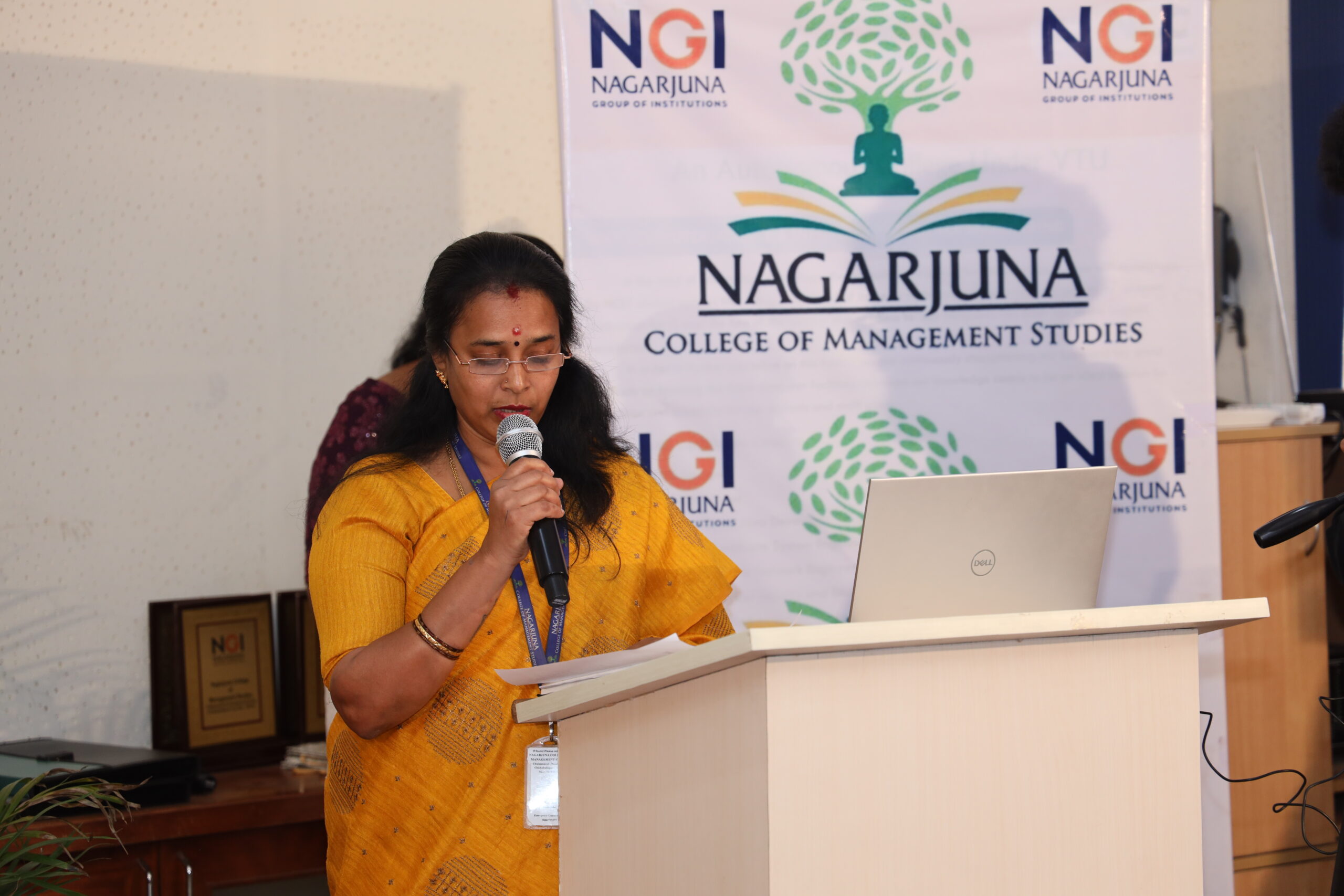
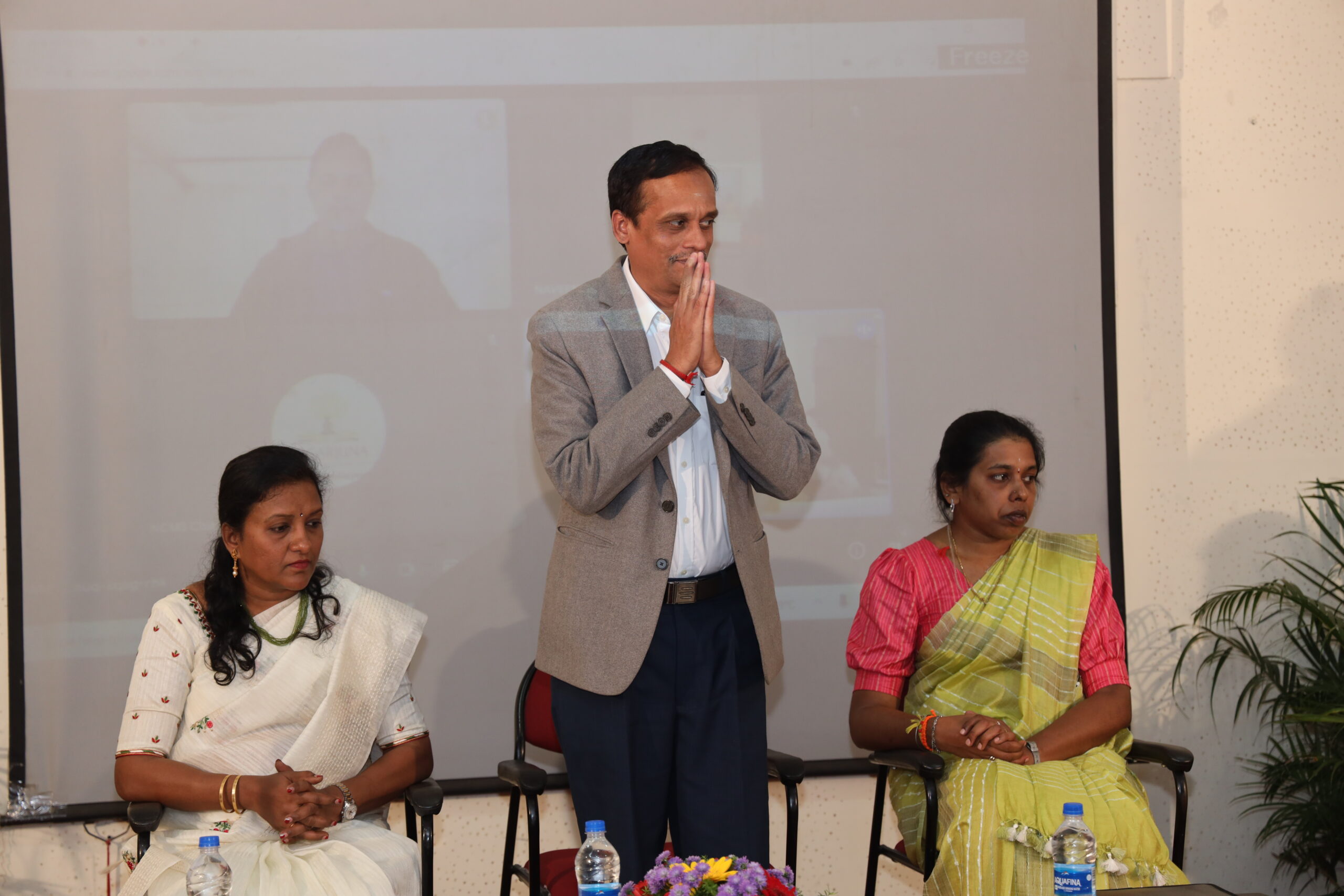
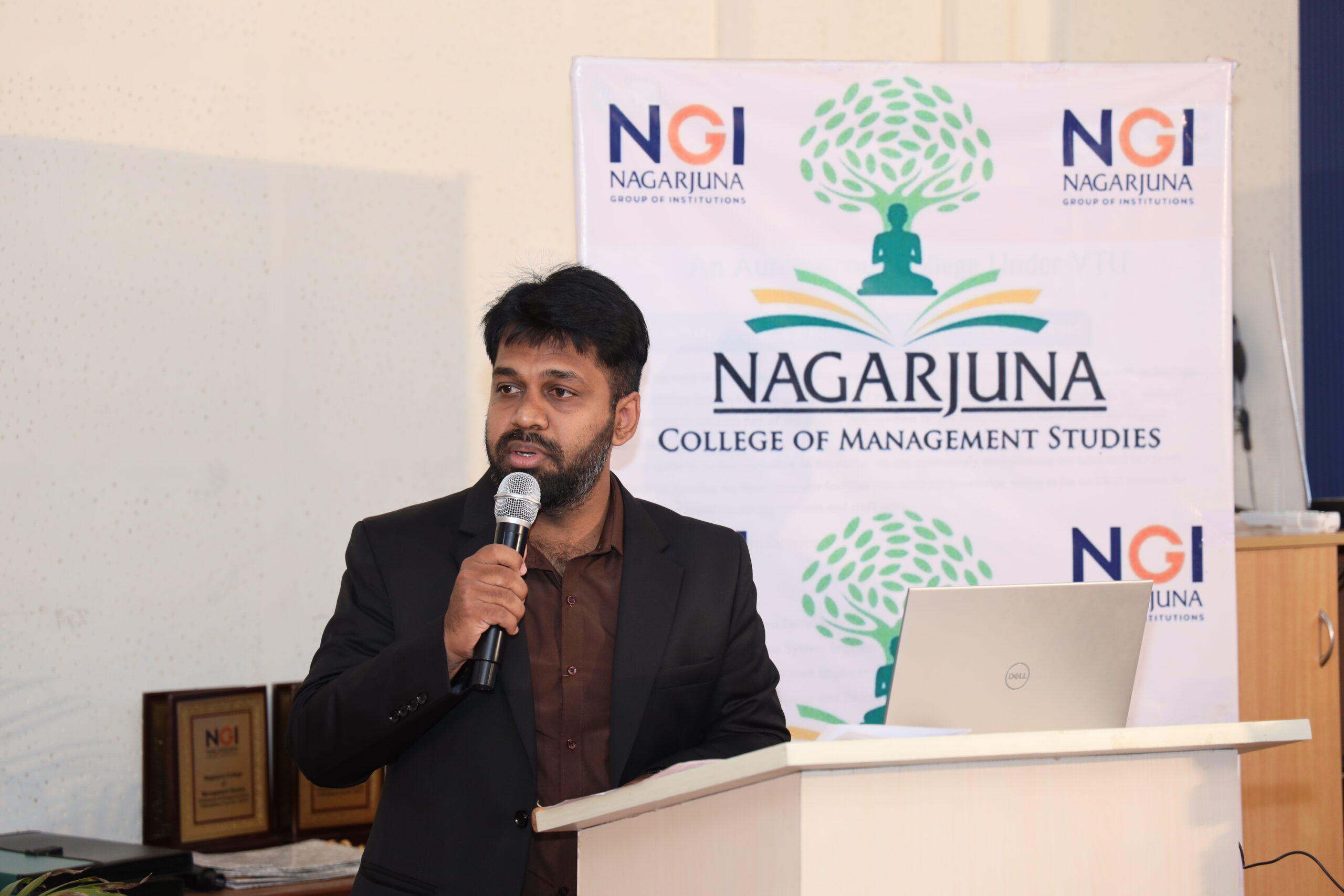
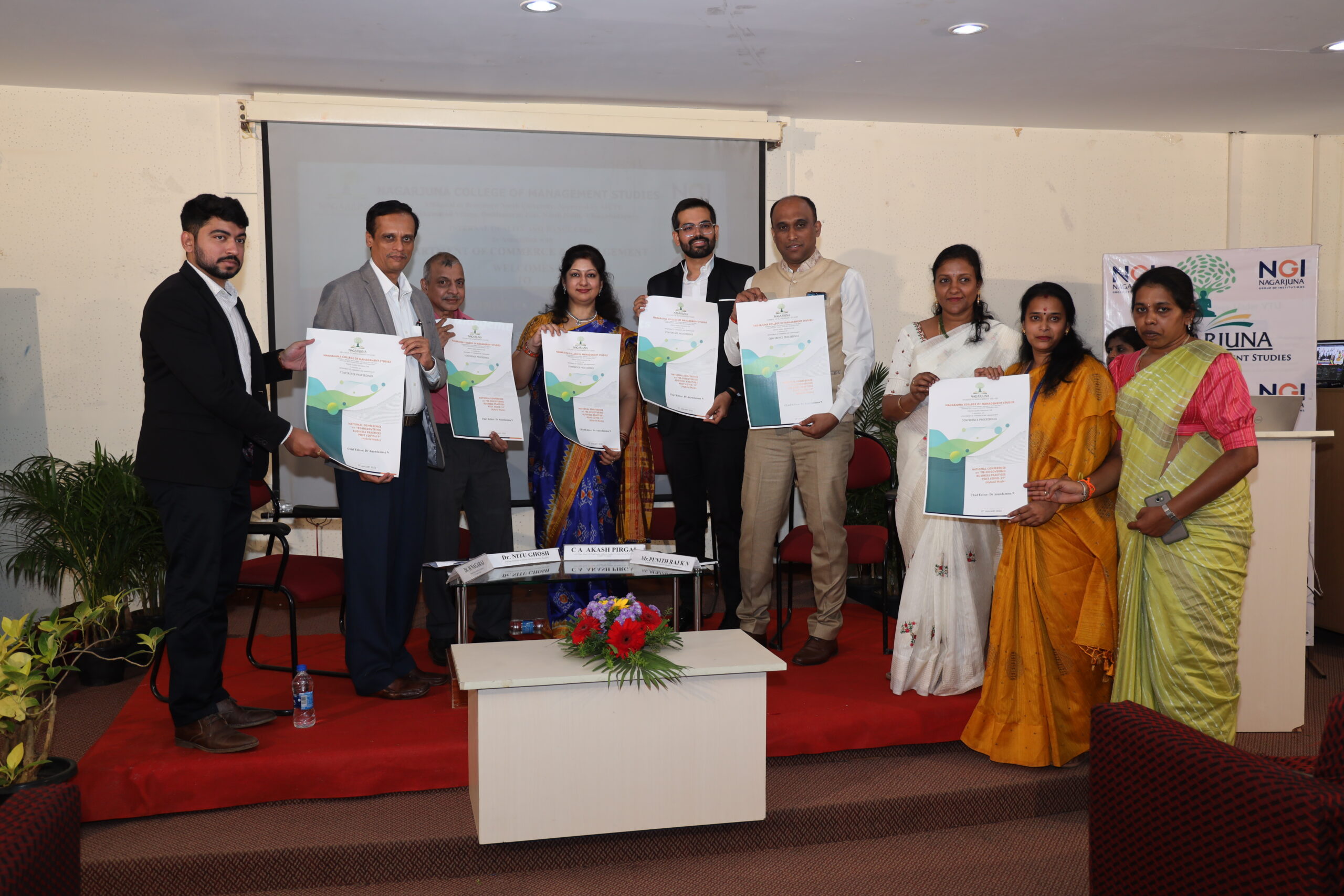
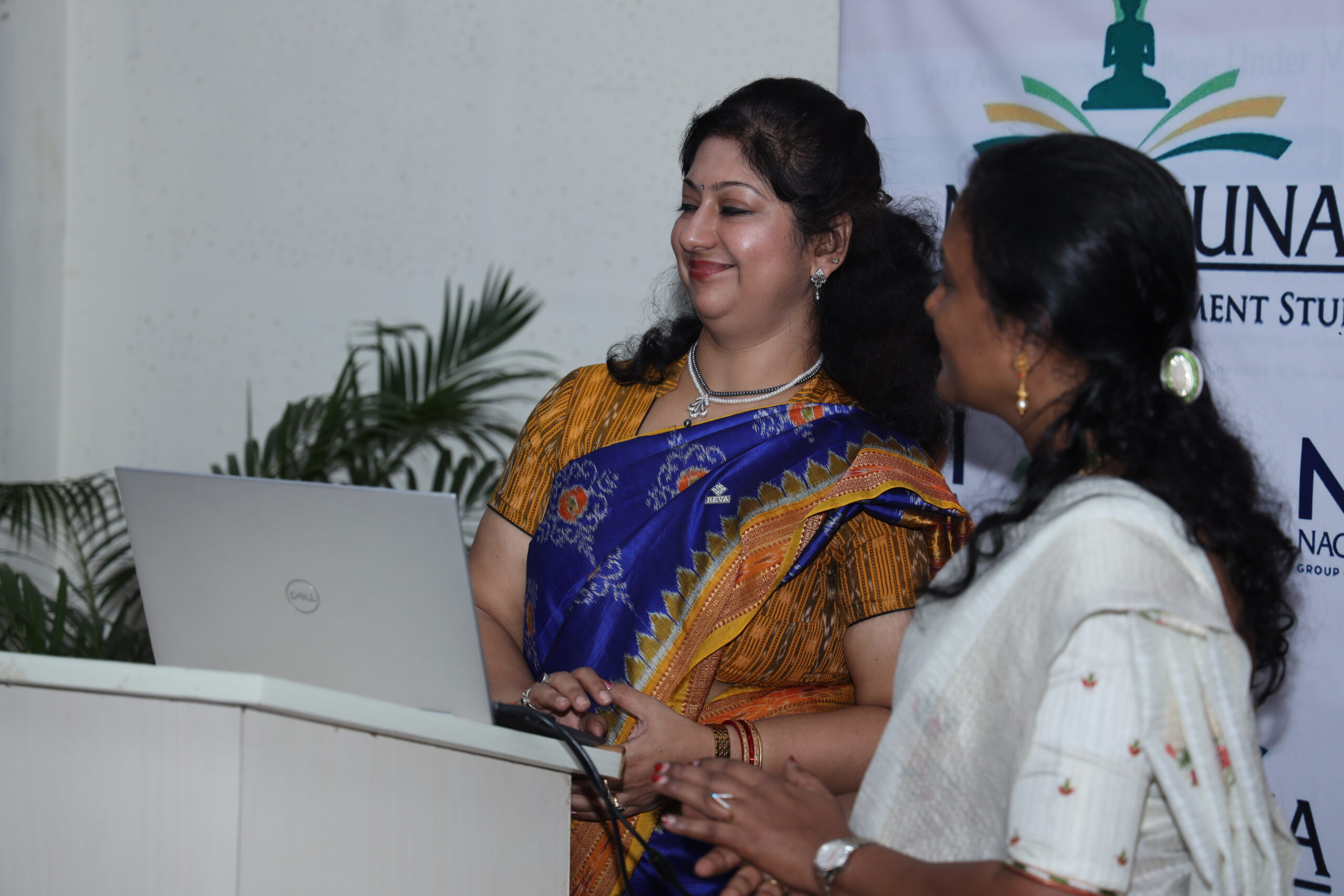
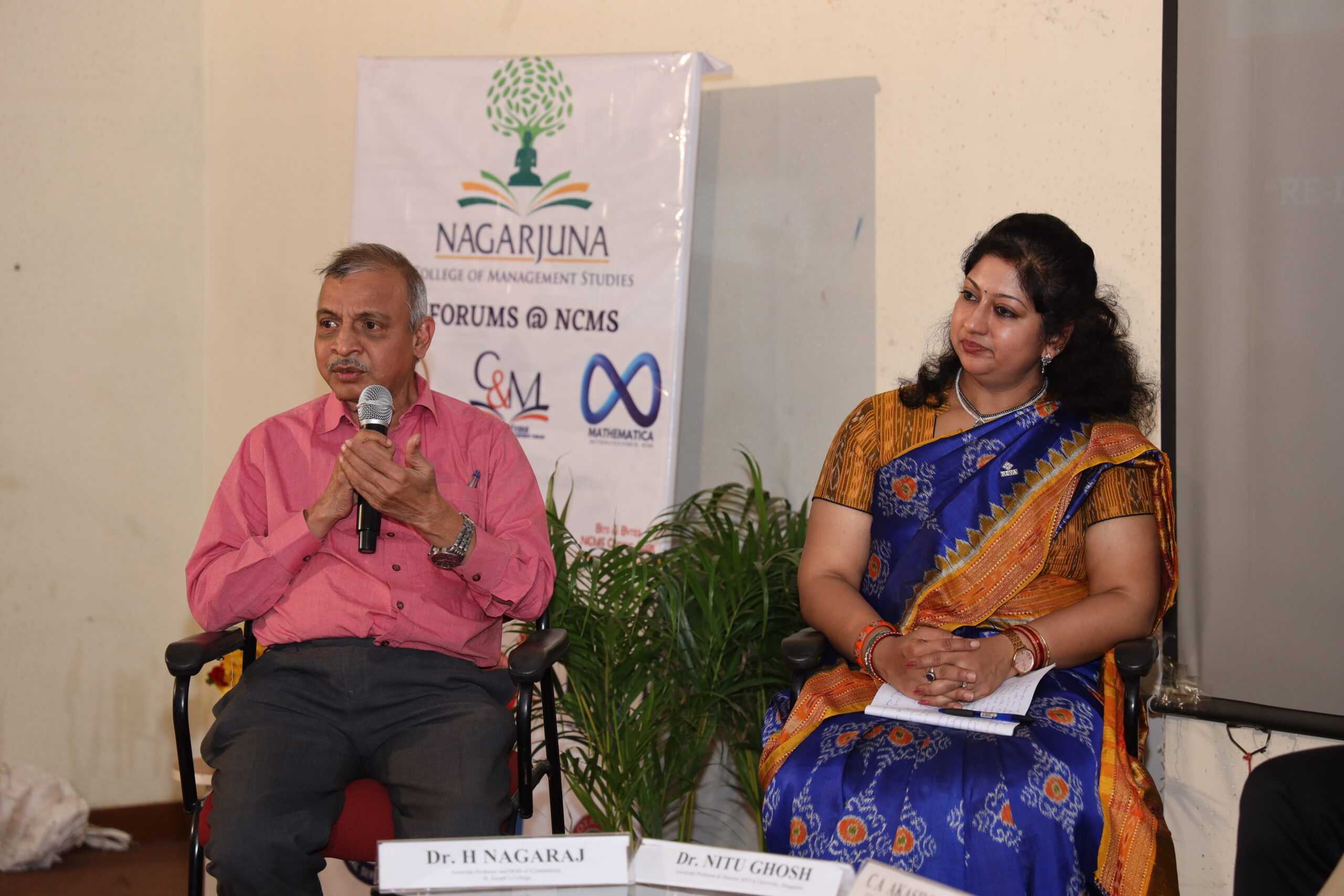
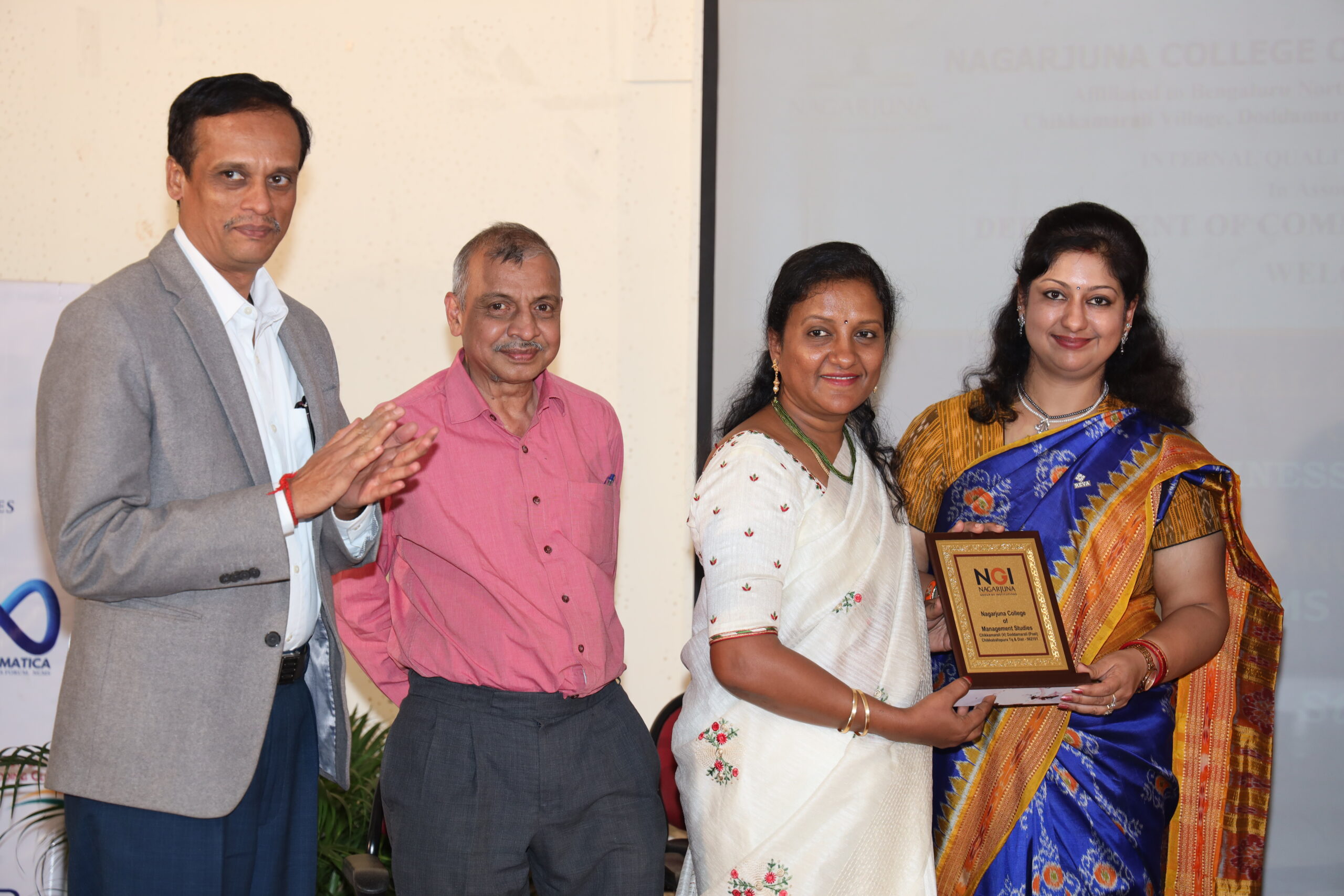
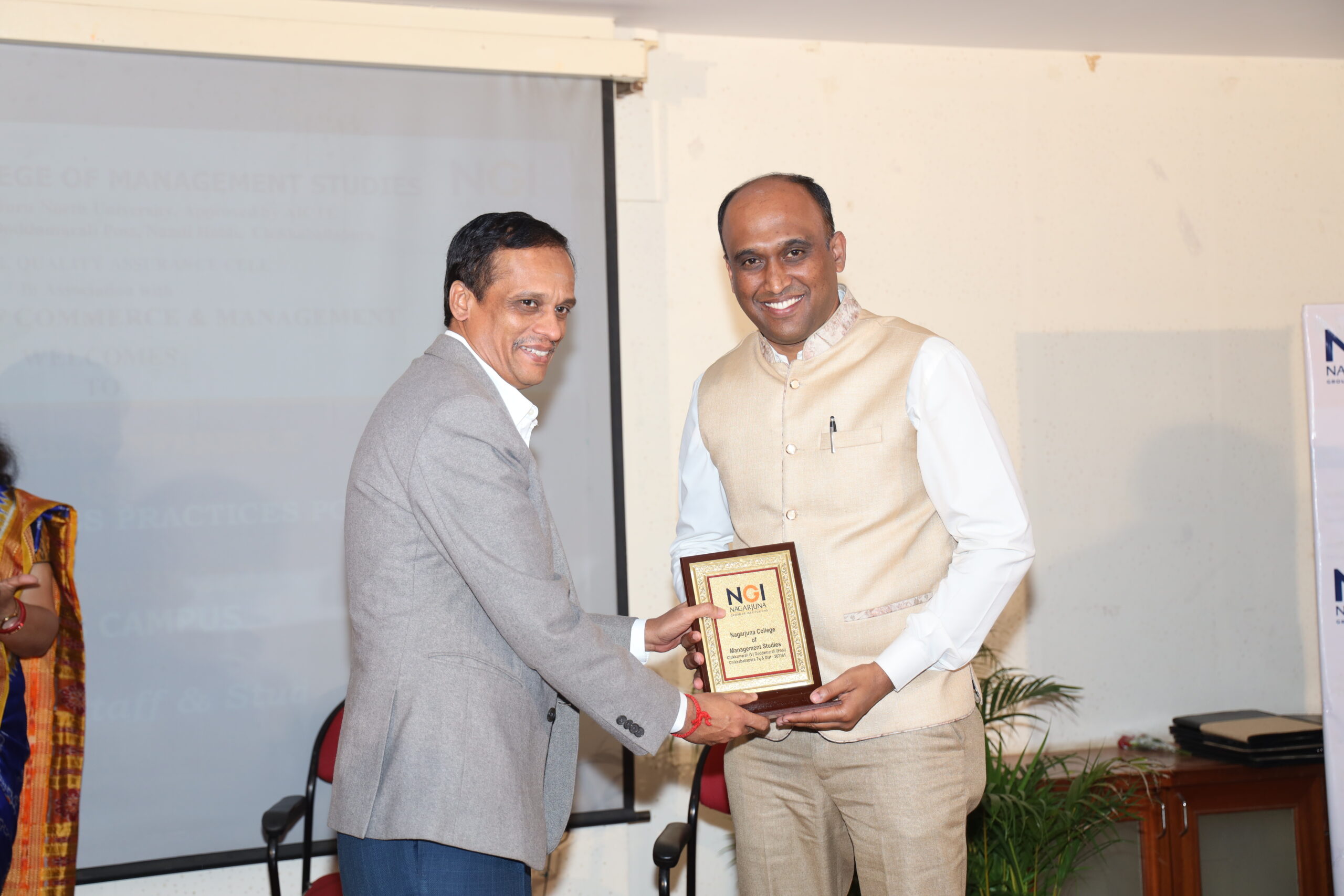
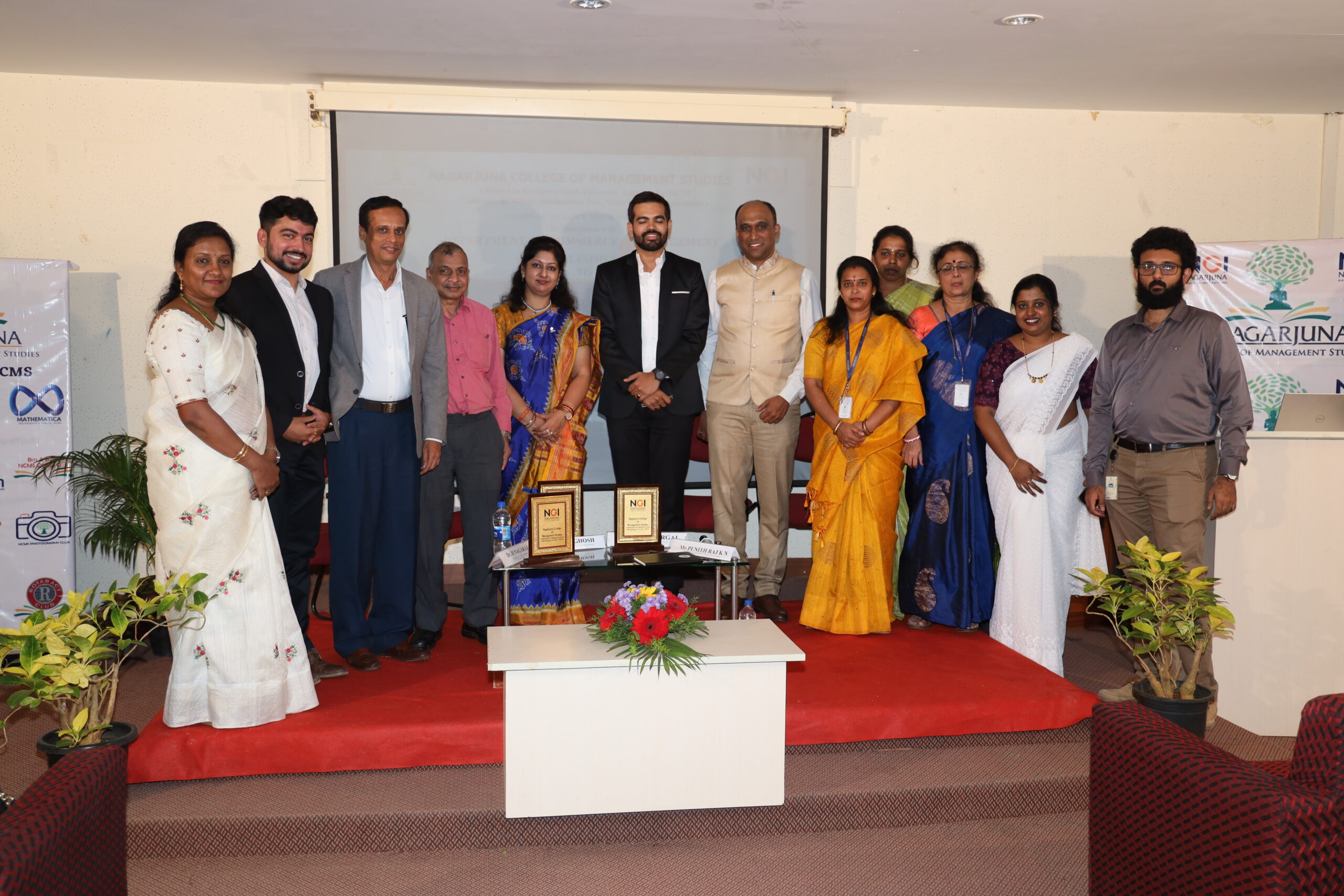
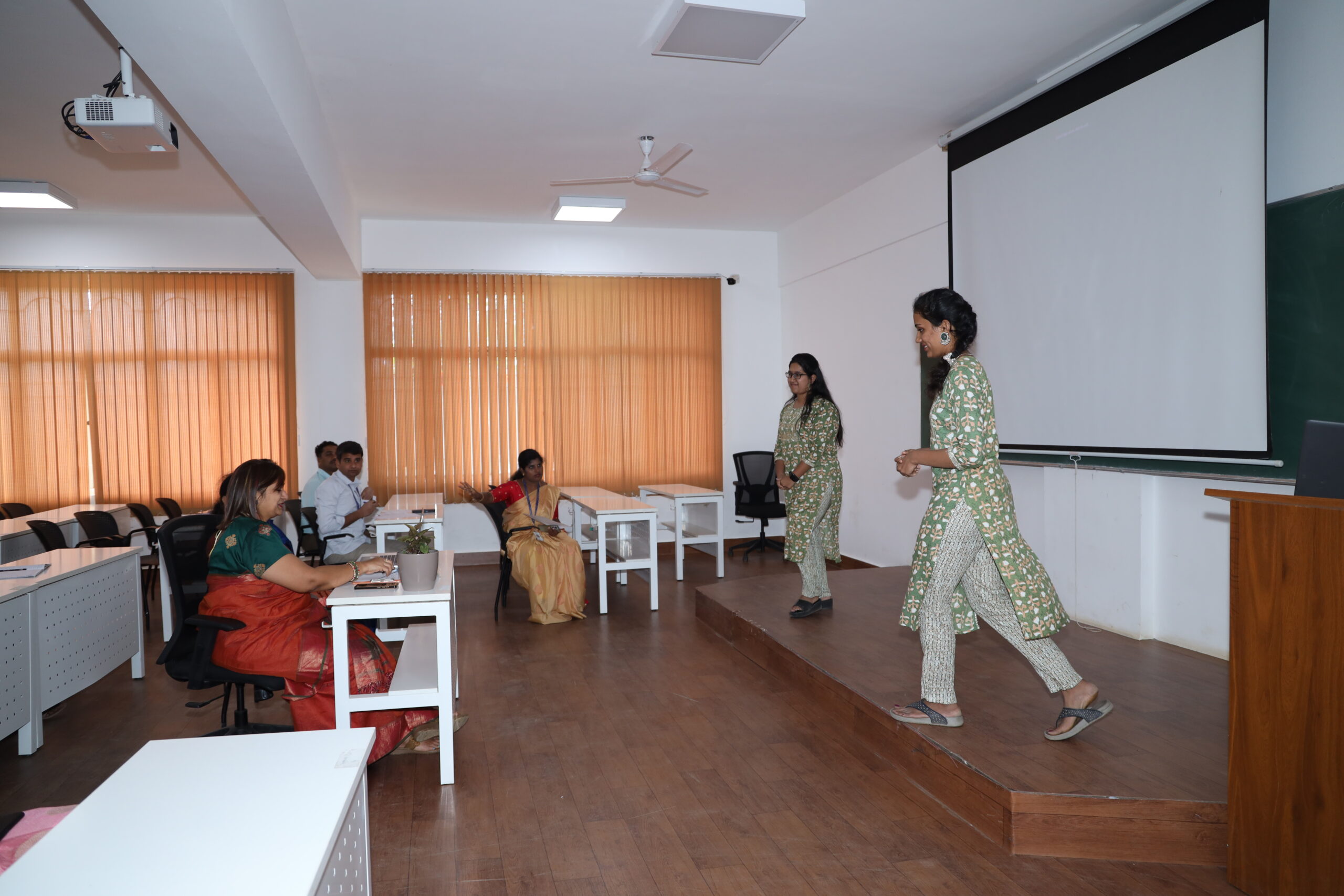
Faculty Development Program/Management Development Program:
Faculty Development Programs are designed to support and enhance the professional development of college and university faculty members. These programs aim to improve the quality of teaching and learning in higher education by providing faculty members with opportunities to enhance their skills, knowledge, and expertise in teaching, research, and academic leadership. The programs may include workshops, seminars, conferences, mentoring, and other forms of training and support, and may cover a wide range of topics such as pedagogy, curriculum design, assessment and evaluation, technology integration, research methods, and professional ethics. The ultimate goal of these programs is to enhance the quality of higher education and promote the academic success of students.
FDP on, “Aligning Industry 4.O requirements with Education 4.O”
March 22, 2022 I Dr. Prathima Khandelwal, Founder FlyHigh, Bengaluru and Dr. Vadapalli Ravindra, Professor, School of Management, Presidency University.
FDP on ‘Aligning Industry 4.0 requirements with Education 4.0’ was focused on preparing educators to integrate technology-driven design into their curricula and embrace the future of education. The aim was to bring together technology and discovery-based learning to help every individual prepare for the future, as well as to equip faculty with the skills and knowledge needed to adapt to the changing landscape of education. The term “Industry 4.0” refers to the fourth industrial revolution, which involves the integration of digital technologies into industrial processes to create smart factories and decentralized decision-making. By aligning education with this trend, the FDP aims to create a futuristic ecosystem in which learners are at the center of an innovative and technology-driven learning environment.
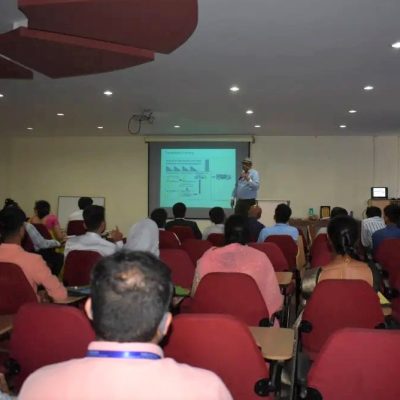
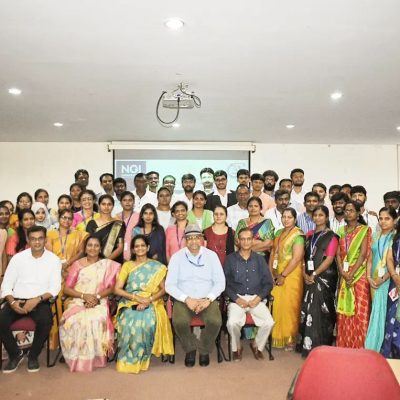
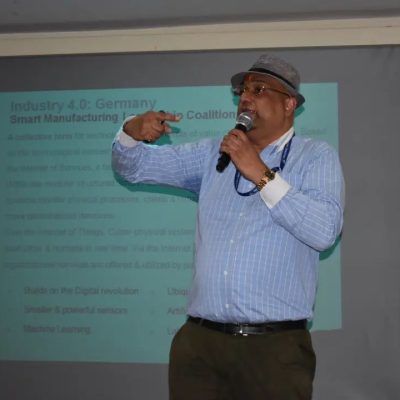
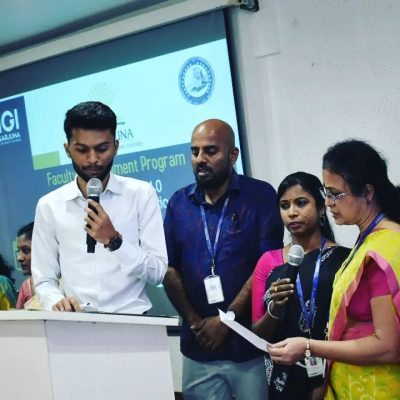
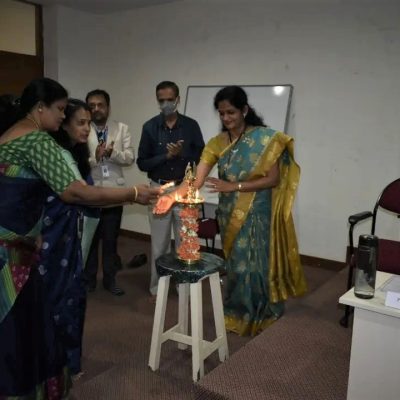
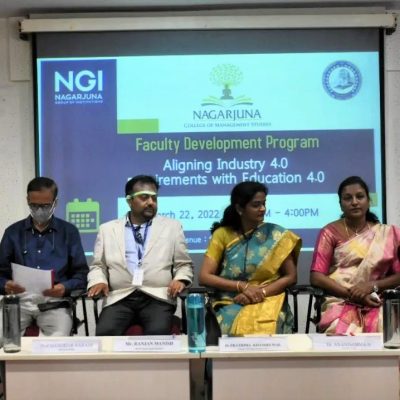
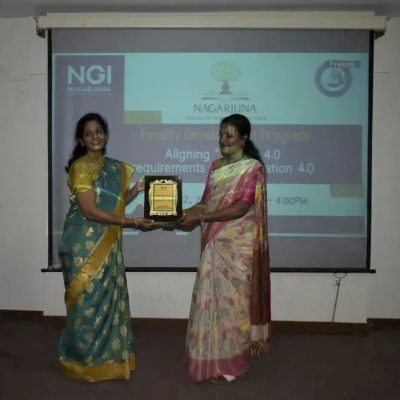
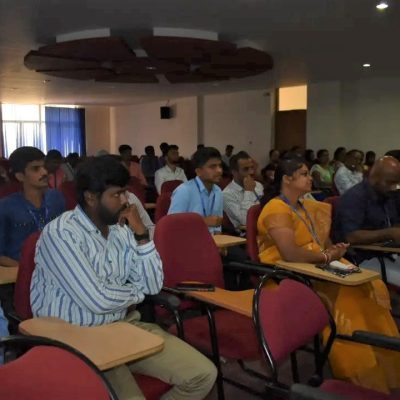
FDP on, “Need for R&D and IPR Activities at Higher Educational Institutions: Myths and Realities! Opportunities and Challenges! How Can You Grow Vertically” was organised in association with IIC - NCMS on June 20, 2022. Resource Person: Dr. K. GOPALAKRISHNAN, Advisor-R&D, NGI/NCET.
FDP on “Need for R&D and IPR Activities at Higher Educational Institutions: Myths and Realities! Opportunities and Challenges How Can You Grow Vertically?” was aimed at providing insights into the importance of R&D and IPR activities in higher educational institutions, the opportunities and challenges they present, and how institutions can grow vertically in these areas. It is important for institutions to develop a comprehensive R&D and IPR policy that encourages innovation and creativity, protects intellectual property, and promotes collaboration between academia and industry.
